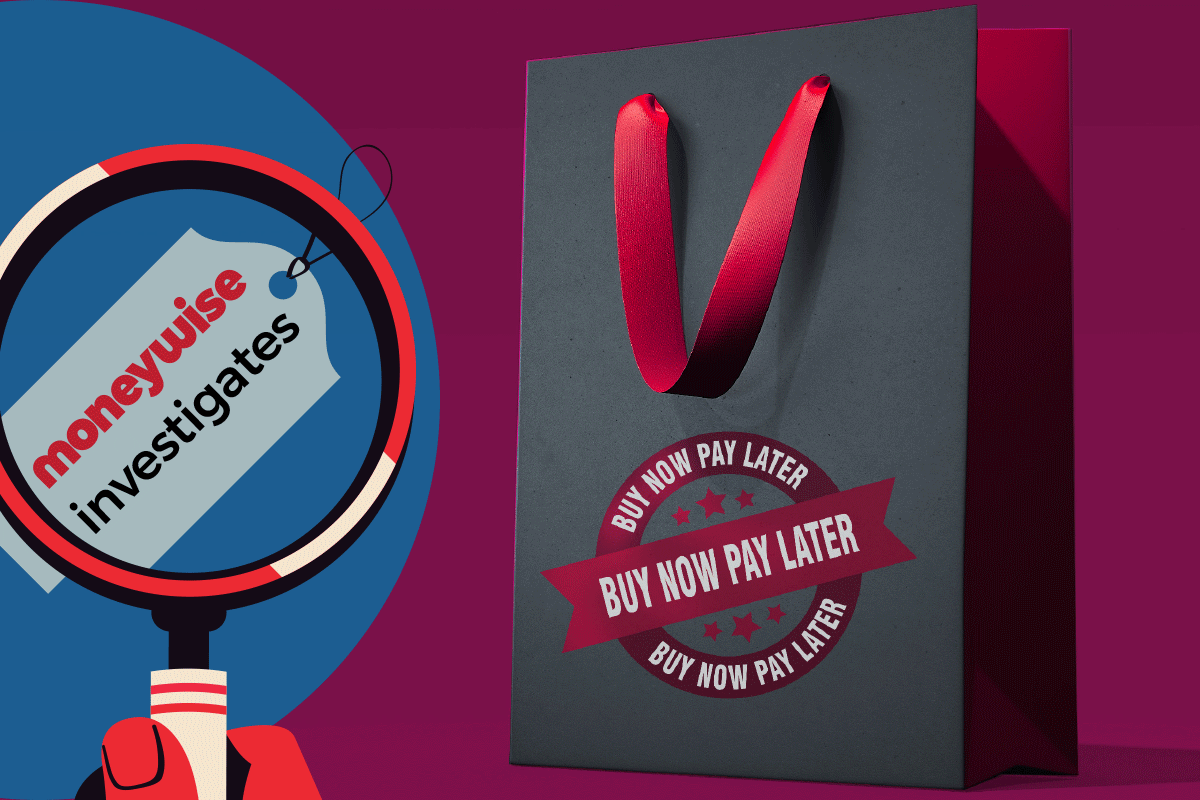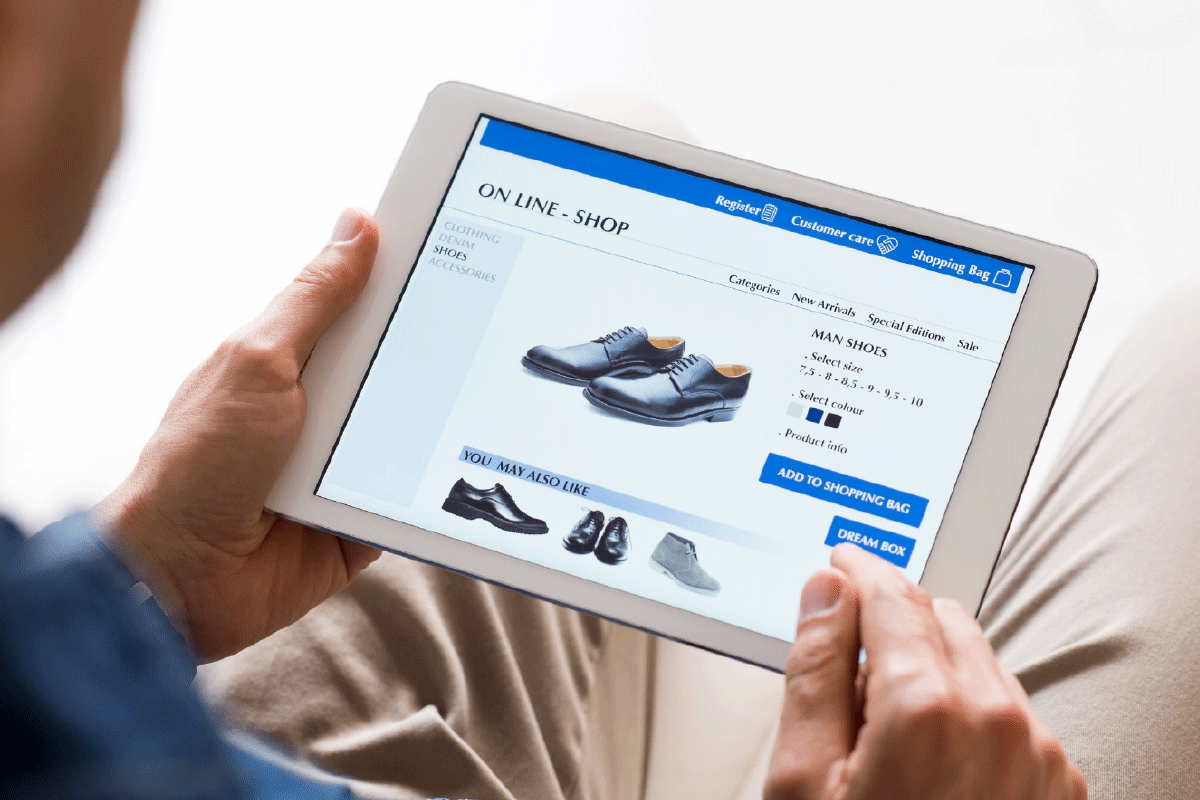The rise of buy now, pay later: Do these schemes help?
A new wave of ‘buy now, pay later’ schemes could be luring shoppers into living beyond their means. …
21st February 2020 14:38
by Emma Lunn from interactive investor
A new wave of ‘buy now, pay later’ schemes could be luring shoppers into living beyond their means. Find out how these plans work and why you might want to think twice before you sign up

Buy now, pay later (BNPL) allows shoppers to make purchases and pay for their goods at a later date. In the past, retailers tended to offer their own BNPL plans for big-ticket items, but many are now using external ‘fintech’ companies such as Klarna, Clearpay, and Laybuy to offer so-called ‘frictionless credit’ on much smaller purchases of as little as £10.
The delayed or split-payment options offered by these firms allow hard-up shoppers to delay payment for purchases without having to go through the rigmarole of taking out a credit card or dipping into their overdraft. Crucially, payments are interest-free and fee-free.
This might sound great on the face of it, but is shopping now and paying later really such as great idea?
Paying in instalments
Klarna has been at the forefront of the BNPL revolution. Since it launched in the UK in 2016, it has been popping up as a payment option on the websites of more than 4,000 retailers including H&M, ASOS, JD Sports, Superdry and Topshop, encouraging shoppers to ‘Klarna it’.
The ‘pay later with Klarna’ option at an online checkout gives shoppers the option to pay in full in 14 or 30 days’ time (depending on the retailer) or to split the payment into three interest-free instalments, payable at 30-day intervals. More recently, it has added an interest-bearing ‘consumer financing’ option with payment terms of six to 36 months on borrowing up to £5,000.
When it comes to clothes shopping, paying later with Klarna offers an extra advantage: If you send clothes back after trying them on at home, you do not have to wait for refunds as the money has not been taken from your account. You only pay for what you actually keep.
Luke Griffiths, UK general manager at Klarna, says: “Our products are designed to give customers of all ages financial flexibility, convenience and control, and to do so responsibly.
“They are often used for convenience, rather than financial reasons, and are ideal for consumers who order multiple items to try on at home. For example, we are observing a notable trend among new mums who do not want to bring young children into stores and changing rooms and prefer the convenience and privacy of trying their goods in their own home.
“Using Klarna prevents them having to part with a large sum of money up front, so they can try before they buy. We have limits on how often and how much a customer can spend, and we do not offer an open line of credit.”
Kiwi-import Laybuy, which partners with retailers including Footasylum, King Apparel, Muscle Rage and Fuel Station, splits payment into six interest-free instalments, with the first taken at the time of purchase and the remaining five payments taken each week automatically.
Rival Clearpay is part of Australian giant Afterpay and launched in the UK in June 2019 with partners, including Marks & Spencer, Boohoo and Urban Outfitters. Clearpay splits the total cost of a purchase into four instalments, with the first payment made straight away and the other three at fortnightly intervals.
New rules for buy now, pay later store schemes
Since 12 November, the Financial Conduct Authority has introduced new rules for firms offering buy now, pay later schemes. The new regulations target online catalogue stores, such as Very, Jac-amo, Gratton and Littlewoods, which offer shoppers the chance to buy goods and pay for them in six to 12 months’ time with no interest charged.
Shoppers ran into problems with this type of credit because if they had not repaid the total amount by the end of the interest-free period, interest of 30% to 45% would sometimes be charged on the original amount borrowed and backdated to day one.
The new rules mean companies cannot charge interest on money that has already been repaid. Firms also have to provide better information to consumers about these loans before they take them out and remind shoppers when the offer period is about to end.
Spending encouraged

So how do split-payment firms make money if not from interest and fees? The answer is transaction fees from retailers plus a percentage of the order value. In return, retailers are promised more and bigger orders.
For example, in marketing material aimed at retailers, Clearpay claims its partners see a 20% to 30% increase in order value. Shoppers, meanwhile, can spread the cost of a purchase of as little as £10.
Iona Bain, founder of the Young Money Blog, says BNPL schemes target young people and aim to reduce the number of times online shopping trollies are abandoned.
“They work with retailers in fast fashion, cosmetics and other youth-centric markets; and they use simple, cool language on their websites and in all their marketing. Their colour schemes and imagery are attractive and youth-friendly, and would not look out of place on Instagram or Snapchat.
“They also use celebrity ambassadors, such as Snoop Dogg, who have cult appeal among Gen Y and millennials, while ‘influencers’ are doing ads for Klarna under the #klarnait hashtag,” she says,
“Plus, their whole strategy is to solve a common young consumer problem: how can I stay up to date with trends in fashion, beauty and interior design if I only have a limited flow of funds?”
Several pieces of research suggest that BNPL schemes encourage shoppers to spend more than they planned to. For example, a survey by employee benefit scheme Hastee revealed that 59% of people aged between 18 and 35 felt they were encouraged to spend more money with BNPL schemes.
Debt charity PayPlan found that more than 70% of people aged 18 to 34 had used a BNPL plan to make purchases, with nearly three-quarters (73%) saying that BNPL schemes contributed towards a debt problem later on.
Rachel Duffey, chief executive of PayPlan, says: “Although these schemes are convenient in the short term, they can have a negative lasting effect. If used frequently, it can be easy for buyers to lose track of repayment deadlines, resulting in late charges and fines. Some schemes have a minimum spend of £10 and if you are considering spreading the cost for such a small amount, you may want to consider whether this is necessary in the first place.”
The firms themselves claim they encourage responsible spending, rather than tempting people into debt. Gary Rohloff, managing director of Laybuy, says BNPL schemes can promote healthier spending habits.
“Many of our customers find the weekly payments help with budgeting and that they can access products when they need them,” he says, “People really appreciate this flexibility.”
A statement from Clearpay says: “Customers are empowered to spend flexibly within sensible limits. We help customers avoid debt traps and revolving interest payments – for example, there are built-in consumer protections which restrict an account from being used if just one payment is missed – essentially turning the credit card model on its head.”
Late payments

BNPL providers are keen to use words such as ‘freedom’ and ‘flexibility’ in their marketing but, in reality, the way payments are taken is quite restrictive. Instalments are paid via a ‘continuous payment authority’ (CPA) set up on a debit or credit card.
A CPA is different from a direct debit because the payment instruction is with the business, not with a bank. This gives the company more flexibility in taking money from your account – but the account-holder has less flexibility as CPAs are more difficult to stop than direct debits.
“The main issue with CPAs as it relates to debt management is that it takes the individual out of control of when and whom to pay, so makes it more likely that the lender that has the CPA in place gets paid, potentially leaving the individual without the necessary funds to pay more important priority debts,” explains Sue Anderson of debt charity StepChange.
If a BNPL company tries to take a payment from your card but is unable due to a lack of funds, there are likely to be repercussions. Klarna does not charge late payment fees, but Laybuy and Clearpay both charge £6 if the payment is not made within 24 hours of being due and another £6 if it is still outstanding a week later.
All three firms report unsettled accounts to credit reference agencies, with late payments likely to impact on consumers’ credit scores. Unpaid debts will also eventually be passed to debt collection agencies, with the associated fees and stress.
If you come across a retailer dangling BNPL as a financially painless way of buying, it is worth pausing for thought. Would you still be buying the item if BNPL was not available?
“Getting sucked into a lifestyle of constant online spending, returning and borrowing will make you feel anxious, dissatisfied and out of control,” warns Bain. “If you need to use BNPL, the message is simple: you cannot afford it. BNPL is not there to do you a favour. It is there to make money for itself and retailers. You are the one who will ultimately lose out by spending more on things you never really wanted or needed. Don’t fall for it.”
This article was originally published in our sister magazine Moneywise, which ceased publication in August 2020.
These articles are provided for information purposes only. Occasionally, an opinion about whether to buy or sell a specific investment may be provided by third parties. The content is not intended to be a personal recommendation to buy or sell any financial instrument or product, or to adopt any investment strategy as it is not provided based on an assessment of your investing knowledge and experience, your financial situation or your investment objectives. The value of your investments, and the income derived from them, may go down as well as up. You may not get back all the money that you invest. The investments referred to in this article may not be suitable for all investors, and if in doubt, an investor should seek advice from a qualified investment adviser.
Full performance can be found on the company or index summary page on the interactive investor website. Simply click on the company's or index name highlighted in the article.